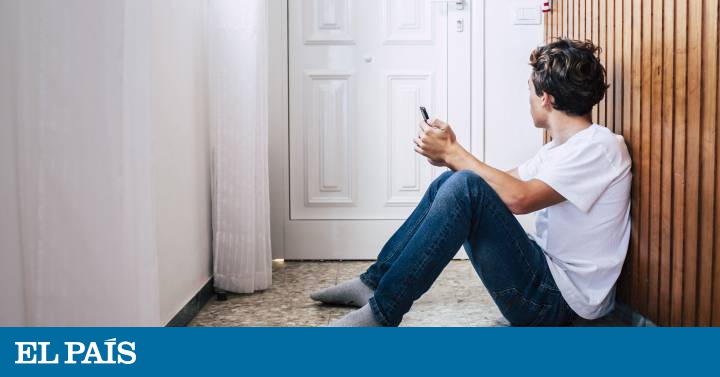Since the covid-19 crisis began and the state of alarm was decreed, confinement has put us in a strange situation that is difficult for many people to deal with. After a month of confinement and without a clear release date, the general sentiment has gone from disbelief to waiting and resignation. And although in essence the psychological recommendations that were given at the beginning of the pandemic are still in force, the passage of time means that we have to make new adjustments so as not to suffer too much stress. Among them, sharing concerns, being more informed than ever, renewing our routines and not losing sight, for many days that pass, that the confinement has a collective purpose. A recipe that also serves to remind us that #We continueConnected to reality. Here, we offer several useful guidelines and thoughts after a month of confinement.
What has changed since the beginning of the crisis?
"Before the state of alarm occurred, there was disbelief," says Guillermo Fouce, a social psychologist and president of the Psychology Without Borders Foundation. "Now, the passage of time has become very important. It both favors and hurts us: on the one hand we have experience and we have developed strategies to support it, but on the other we accumulate more fatigue and exhaustion."
Every day it is more urgent to glimpse the end. "The main uncertainty is not knowing, not having an easy interpretation framework. That generates helplessness, psychological tension, difficulties. Without that component, adaptation to the situation is complicated."
So what can you do?
In an unknown and so variable scenario, the recommendations are not easy to give. "There is a lot of casuistry. Have we lost our job? Have we lost a family member to the disease? Have we passed it ourselves? Do we have family support?" Fouce describes. "They are variables that will determine our backpack of strengths to get better or worse from the trance."
All in all, what can any citizen do? This expert offers several basic keys.
- Rethink situations that will occur during and after confinement. If there is no physical contact, many productive forms of work will have to be readjusted and changed. It will also happen with the activities we have stopped doing and affective relationships. Without a doubt we will value what we do not have and what we can recover. For example, the power of the gaze or, when possible, that of a hug, a very powerful and direct communication.
- Have a schedule and stick to it. Do not let go even if time has passed. Structure a way of life and introduce new elements or routines from time to time.
- Maintain and cultivate our social relationships. Do not isolate yourself if you are wrong. You have to talk to the closest people. Laugh, cry, express. Find shared strategies. Something simple: we can watch a movie and a friend each from their home. Or continue dining with creativity. Seeing similar things happen to others helps to normalize the situation.
- Disconnect from the news 100% virus. Read and listen to other things.
The running of the bulls has a meaning
"The first question we ask ourselves in any crisis is what is the meaning of what is happening," Fouce analyzes. "When we have tiredness, boredom, stress or anxiety, something perfectly logical, the recommendation has to be to go back to the rational part of all this: you are here for something, this makes sense, look at what is happening, remember the figures and the data".
Precisely, Fouce says, the improvement in numbers and the good news feed our sense of mission with society. "In addition, that both people from our environment and relevant figures accept it helps us to strengthen our interpretation of confinement," he adds. For this reason, campaigns such as Saldremos Juntos and the like refer to the search for a collective purpose. Exceptional measures have a primary reason: to preserve our health.
Neither too much nor too little: good information
"You have to be informed with reliable sources. Be serious in this aspect and read and listen to truthful and contrasted things. If we let ourselves be carried away by the hoax or the rumor, we are playing the game who created it, which usually has a specific interest, and feeding uncertainty, "warns Fouce.
How to protect yourself against this? "Before sending something suspicious, I stop for a moment and think about who I may be benefiting," recommends the psychologist. "The importance of information is a matter of transparency, but also of a framework. If we do not have that framework, that panorama, we enter a path of defenselessness, which has a tremendous psychological impact. And if I am defenseless, I return to the previous point. I start to wonder: why do I lock myself in? Why do I do this? "
What if I need help?
There are several official telematic services for psychological attention. The General Council of Psychology of Spain, in collaboration with the Ministry of Health, makes several telephones available to citizens to, among other services, provide support if we have a sick family member, attend episodes of anxiety or help the health workers who are dealing with the pandemic. The numbers can be found here.
The Official College of Psychology of Madrid also has a specific line for these questions (900 124 365). Also the Psychology Without Borders Foundation (644 720 567/658 712 646), which focuses more on helping groups with greater difficulties to obtain support and information, such as the elderly, deaf-mutes or immigrants.

